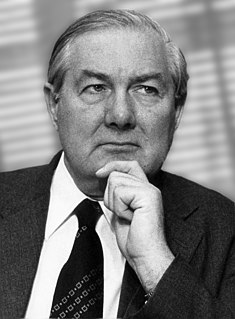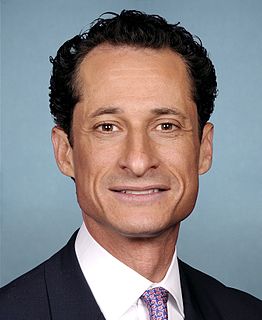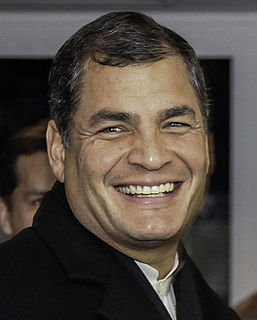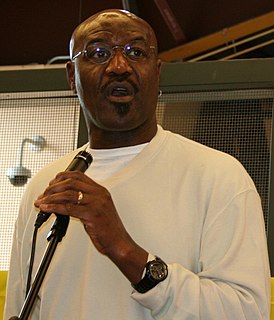Top 766 Unemployment Quotes & Sayings - Page 12
Explore popular Unemployment quotes.
Last updated on December 22, 2024.
We need to be protecting American citizens who are here, out of work, and hurting today-minorities, Blacks and Whites and all colors and races that are hurting today with high unemployment, but we seem to be more focused on how we can ram through this Senate a bill that would legalize millions and create an even more robust guest worker program. There are not enough jobs now. Give me a break.
Thanksgiving. It proved you had survived another year with its wars, inflation, unemployment, smog, presidents. It was a grand neurotic gathering of clans: loud drunks, grandmothers, sisters, aunts, screaming children, would-be suicides. And don't forget indigestion. I wasn't different from anyone else: There sat the 18-pound bird on my sink, dead, plucked, totally disemboweled. Iris would roast it for me.
I am actually quite encouraged and I think, actually, the UK is coping with globalisation a lot better than most other European countries. And that is reflected in the fact that (whilst of course there are people who are still unemployed) our unemployment rate is low and (whilst of course we need to export more) we are attracting a huge amount of inward investment into Britain.
President Obama announced this week that he is going to start sending out his own messages personally on Twitter. And today Anthony Weiner said, “It’s a trap, don’t do it!” But President Obama’s tweets are a little different than Anthony Weiner’s. When Obama sends out pictures of something obscene, it’s the unemployment numbers.
The U.S. and, to a certain extent, countries in Europe as well, have experienced growing inequality within their population for decades - a small group of people own the lion's share of the wealth. Populists take advantage of this, and their policies are extremely hard to predict. And this has serious consequences. Companies shy away from risk, postponing their investment decisions in times of uncertainty, the stock markets get nervous and unemployment threatens to increase.
I am convinced that imprisonment is a way of pretending to solve the problem of crime. It does nothing for the victims of crime, but perpetuates the idea of retribution, thus maintaining the endless cycle of violence in our culture. It is a cruel and useless substitute for the elimination of those conditions--poverty, unemployment, homelessness, desperation, racism, greed--which are at the root of most punished crime. The crimes of the rich and powerful go mostly unpunished.
It should be possible to emphasize to students that the level of employment is a macroeconomic issue, depending in the short run on aggregate demand and depending in the long run on the natural rate of unemployment, with microeconomic policies like tariffs having little net effect. Trade policy should be debated in terms of its impact on efficiency, not in terms of phoney numbers about jobs created or lost.
There are simple things which would make sense. Take, say, weatherization, which would make a big cut in the unemployment rate. That's the kind of work that plenty of people are quick to do, and it would save individual households money, and it would make a significant reduction in the threats of climate change. But something is holding it back: the sociopathic character of market systems.
More than ever before, we need to learn and apply the principles of economic self-reliance. We do not know when the crisis involving sickness or unemployment may affect our own circumstances. We do know that the Lord has decreed global calamities for the future and has warned and forewarned us to be prepared. For this reason the Brethren have repeatedly stressed a 'back to basics' program for temporal and spiritual welfare.
Taxes are paid in the sweat of every man who labors. If those taxes are excessive, they are reflected in idle factories, in tax-sold farms, and in hordes of hungry people, tramping the streets and seeking jobs in vain. Our workers may never see a tax bill, but they pay. They pay in deductions from wages, in increased cost of what they buy, or - as now - in broad unemployment throughout the land.
England totally disarmed and an easy prey to hostile forces! Can you think of anything more likely to excite cupidity and hostile intention? We should sink to the level of a fifth rate Power, our Colonies would be stripped from us, our commerce would decline, famine and unemployment would stalk the land... I have yet to learn that the cause of peace can be served by rendering our country impotent.
A city suffering from chronic poverty, out-of-control crime, a $76 million budget deficit and a 15 percent unemployment rate (nearly 50 percent for Oakland's youth) can hardly afford such social justice follies. But a pushover Democratic mayor and an overwhelmed police force have left what's left of gainfully employed Oakland taxpayers at the mercy of professional freeloaders and anti-capitalism saboteurs.
The current economic crisis...has numerous causes and sends a powerful message about the need for a profound revision of the model of global economic development. It's an acute symptom that is added to other more grave and already well-known ones, such as the continued imbalance between wealth and poverty, the scandal of hunger, the ecological emergency and the problem of unemployment, which has now become general. In this context a strategic re-launching of agriculture appears decisive.
Raising the minimum wage and lowering the barriers to union organization would carry a trade-off - higher unemployment. A better idea is to have the government subsidize low-wage employment. The earned-income tax credit for low-income workers - which has been the object of proposed cuts by both President Clinton and congressional Republicans - has been a positive step in this direction.
If you look at what's happened to the stock market, if you look at what's happened to housing values, if you look at what's happened to bank loan portfolios because the value of their other assets that they've already issued loans against were going down, there was a pretty good argument for trying to pass something at about this level of investment with the divisions as they were - unemployment, food stamps, and tax cuts, aid to education and healthcare, and job creation.
In socialist society certain inequalities in property still exist. But in socialist society there is no longer unemployment, no exploitation, no oppression of nationalities. In socialist society everyone is obliged to work, although he does not, in return for his labour receive according to his requirements, but according to the quantity and quality of the work he has performed.
During the 1960s, one neighborhood in San Francisco had the lowest income, the highest unemployment rate, the highest proportion of families with incomes under four thousand dollars a year, the least educational attainment, the highest tuberculosis rate, and the highest proportion of substandard housing ... That neighborhood was called Chinatown. Yet, in 1965, there were only five persons of Chinese ancestry committed to prison in the entire state of California.
This much I would say: Socialism has failed all over the world. In the eighties, I would hear every day that there is no inflation in the Soviet Union, there is no poverty in the Soviet Union, there is no unemployment in the Soviet Union. And now we find that, due to Socialism, there is no Soviet Union!
The crisis was 2008, in 2015 - almost eight years later and the gap between where we would have been and where we are is huge and not closing. The implied unemployment rate is very high, labour force participation is very low, and the increase in wages in the second quarter was the lowest in 25 years. Before this turmoil, the U.S. economy was in better shape than Europe or Canada, but not strong.
We used to think that you could spend your way out of a recession and increase employment by cutting taxes and boosting government spending. I tell you in all candour that that option no longer exists, and in so far as it ever did exist, it only worked on each occasion since the war by injecting a bigger dose of inflation into the economy, followed by a higher level of unemployment as the next step.
The Democrats loved Jimmy Carter, even though - and, by the way, take a look at some economic circumstances. In 1980, the economy of this country was in the tank after four years of Jimmy Carter. I mean, it was desperately bad. Unemployment was sky-high. Carter had seen us through a couple of near-depression recessions, all of this coming out of Watergate, which happened in 1972.
Until the Great Depression, most economists clung to a vision of capitalism as a perfect or nearly perfect system. That vision wasn’t sustainable in the face of mass unemployment, but as memories of the Depression faded, economists fell back in love with the old, idealized vision of an economy in which rational individuals interact in perfect markets.
I think the most surreal moment for me having been a kid who was on unemployment, was on food stamps - I'm not kidding you, to utter these words aloud is so surreal to me - but to say, "I had to give up my Super Bowl tickets for my all-expense paid research trip to Argentina's wine country," it was like, who's life is this? It was splendid, and the nice thing was that they renewed my contract for another year.
We can say without exaggeration that the present national ambition of the United States is unemployment. People live for quitting time, for weekends, for vacations, and for retirement; moreover, this ambition seems to be classless, as true in the executive suites as on the assembly lines. One works not because the work is necessary, valuable, useful to a desirable end, or because one loves to do it, but only to be able to quit - a condition that a saner time would regard as infernal, a condemnation.
Sometimes, tax rate increases create the very problems that the spending is intended to cure. In other words, the tax rate increases reduce economic growth; they shrink the pie; they cause more poverty, more despair, more unemployment, which are all things government is trying to alleviate with spending.
It is difficult for me to imagine what “personal liberty” is enjoyed by an unemployed hungry person. True freedom can only be where there is no exploitation and oppression of one person by another; where there is not unemployment, and where a person is not living in fear of losing his job, his home and his bread. Only in such a society personal and any other freedom can exist for real and not on paper.
In a world dependent on international trade and commerce, and staggering under a heavy load of international debt, no policy is more destructive than protectionism. It cuts off markets, eliminates trade, causes unemployment in the export industries all over the world, depresses the prices of export commodities, especially farm products of the United States. It is the crowning folly of government intervention.
God wants us to show compassion and understanding toward the unemployed or the poor not because they are poor, but because poor people, with help from those who are already successful, can become rich. And when the poor become rich, all will benefit, because in our modern economy new unemployment is the first sign of economic growth.
There are systemic, painful problems of globalization and de-industrialization that cannot be solved with a phone call or a tweet or an angry speech or trying to isolate the press and the first amendment. Sooner or later, the Donald Trump show, which is a projection of strength and authority, will have to deliver to his voters. And if he doesn't, in very real terms, if he can't supersede a situation where a president cut the unemployment rate in half, if he can't do better, if he can't open factories and all the rest that he's promised, then I think he's in trouble.
I moved right to L.A., and I had a year of active unemployment. I had 50-something auditions for 50-something different projects, testing and doing callbacks, and could not get hired. And then, almost a year to the day of being out in L.A., I booked my first job, and then I started booking something every other month.
She is a reflection of comfortable middle-class values that do not take seriously the continuing unemployment. What I particularly regret is that she does not take seriously the intellectual decline. Having given up the Empire and the mass production of industrial goods, Britain's future lay in its scientific and artistic pre-eminence. Mrs Thatcher will be long remembered for the damage she has done.
There are other concerns in this state [of Mecklenburg-Western Pomerania], which is one of the prettiest. It's also one of the poorest, where people here are making less than the national average. Unemployment is higher than the national average, and a lot of the young people, especially, have left because there just aren't jobs and that sort of thing. So you have that going on, the feeling that that hasn't really changed in years or at least with their help - with the last state government.
Bad schools, crime, drugs, high taxes, the social security mess, racism, the health care ? crisis? unemployment, welfare state dependency, illegitimacy, the gap between rich and poor. What do these issues have in common? Politicians, the media, and our so-called leaders lie to us about them. They lie about the cause. They lie about the effect. They lie about the solutions.
You cannot make a man worth a given amount by making it illegal for anyone to offer him anything less. You merely deprive him of the right to earn the amount that his abilities and situation would permit him to earn, while you deprive the community even of the moderate services that he is capable of rendering. In brief, for a low wage you substitute unemployment. You do harm all around, with no comparable compensation.
Inflation is certainly low and stable and, measured in unemployment and labour-market slack, the economy has made a lot of progress. The pace of growth is disappointingly slow, mostly because productivity growth has been very slow, which is not really something amenable to monetary policy. It comes from changes in technology, changes in worker skills and a variety of other things, but not monetary policy, in particular.
Our people are dying, poverty and unemployment are on the rise, but the rest of the world says that Musharraf is needed because [only] he can stop nuclear proliferation, [only] he [can launch] an operation in the tribal areas. So he manipulates and dangles some kind of carrot in front of the world all the time. This is not good for the people [of Pakistan], and I think the world has got it all wrong.
To politicians, solved problems represent a dire threat - of unemployment and poverty. That's why no problem ever tackled by the government has ever been solved. What they want is lots of problems they can promise to solve, so that we'll keep electing them - or letting them keep their jobs in a bureaucracy metastasizing like cancer.
In community after community, there are unemployment rates among young African-Americans of 30 to 40 percent. Thirty to 40 percent! Kids have no jobs, they have no future. That is an issue that has got to be dealt with simultaneously as we deal with police brutality, voter suppression and the other attacks that are taking place on the African-American community.
Our feelings alone don't change what happens with the police, what happens in jail, what happens when someone tries to go to the welfare office, the unemployment office, or any kind of state agency where a criminal record comes up for prostitution. How we feel about the commodification of sexuality and violence doesn't actually translate to those people's lives. A lot of the debate is really academic and a waste of time.
But the economic meltdown should have undone, once and for all, the idea of poverty as a personal shortcoming or dysfunctional state of mind. The lines at unemployment offices and churches offering free food includes strivers as well as slackers, habitual optimists as well as the chronically depressed. When and if the economy recovers we can never allow ourselves to forget how widespread our vulnerability is, how easy it is to spiral down toward destitution.
There are going to be a lot of questions, not just in my country, but across the Middle East. Is Israel going to continue to be "Fortress Israel"? Or, as we all hope, become accepted into the neighborhood, which I believe is the only way we can move forward in harmony. And no matter what's happening in the Middle East - the Arab Spring, et cetera, the economic challenges, high rates of unemployment - the emotional, critical issue is always the Israeli-Palestinian one.
All those predictions about how much economic growth will be created by this, all of those new jobs, would be created by the things we wanted - the extension of unemployment insurance and middle class tax cuts. An estate tax for millionaires adds exactly zero jobs. A tax cut for billionaires - virtually none.
What is the worst, is that you will have the meltdown of Zimbabwe that the IMF is talking about. And indeed what you will have is growing unemployment in Zimbabwe, growing impoverishment among the people, growing social conflict. And I think that is the worst sort of outcome, that collapse of Zimbabwe certainly would have a much, much worse effect on the region than mere image.
What we need to do together is to put in place the kind of - foster the kind of environment where businesses of all sizes - small, medium or large - want to invest, want to do the innovative things that our businesses here in America are known for doing, want to grow our economy and want to create the kind of jobs that will bring - reduce that unemployment rate.
As a kid who failed out of high school as a freshman, I know firsthand and personally that sense of hopelessness and just being - drifting in the wrong direction, having really no hope. And being able to harness that frustration was incredibly valuable in my life. That's one of the reasons I focus so consistently on the foundation of education, because it helps to eviscerate those things that - unemployment, high jobless rates, poverty.
What we've undergone in recent decades worldwide has been totally insane, and all of this is a result of capitalism. The workforce in Latin America was treated as a vulgar instrument for capital accumulation. Mechanisms of exploitation were imposed, such as outsourcing, labor mediation, and the like.The results are plain to see: greater inequality in Latin America; unemployment is higher than in previous decades; we haven't resolved the problem of poverty; we've lost a great deal of sovereignty.
Based on technological research and the transformation of nature, industrialization constantly goes forward, giving proof of incessant creativity. While certain enterprises develop and are concentrated, others die or change their location. Thus new social problems are created: professional or regional unemployment, redeployment and mobility of persons, permanent adaptation of workers and disparity of conditions in the different branches of industry.
Pretty much from 1979 through 1988, the backbone of my career was the theater. Working on Broadway a couple of times, working off-Broadway, and also doing a lot of regional theater. Make no mistake, I lived very frugally. I had an apartment that was real cheap. I would get two or three jobs per season, and in between I'd be on unemployment.
Should any political party attempt to abolish social security unemployment insurance and eliminate labor laws and farm programs you would not hear of that party again in our political history. There is a tiny splinter group of course that believes you can do these things. Among them are a few other Texas oil millionaires and an occasional politician or business man from other areas. Their number is negligible and they are stupid.
And let's not forget that internally, we are, like all dying empires, being hollowed out from the inside in terms of infrastructure. I live near Philly, I live in Princeton. The school system is shattered with closings and layoffs. Libraries are being shuttered. Head Start is being cut back. Unemployment benefits are not being extended. You know, we've reached a point of both physical and emotional exhaustion.
Here in Iowa, as a state senator, I have worked hard to find solutions that work for our state and as a result we've reduced taxes and lowered the unemployment rate. We have done that through hard work and sticking to our Iowa values. In the final months of this campaign I'll be asking voters to send me, and those Iowa values, to Washington, D.C.























































